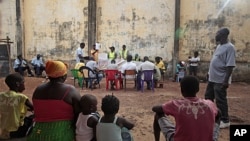Voters in Guinea-Bissau went to the polls March 18 to choose a new president, an election that provides an opportunity to put the West African nation on the path to long-sought stability. International observers noted some problems with election organization and confusion at some polling stations, but no irregularities. Nine candidates took part and the preliminary vote count showed no clear winner. If that vote holds up, the election will go to a second round in late April.
Guinea-Bissau gained independence from Portugal in 1974, and although a democratic government was established, no president has ever completed a full term in office. Three of the nation’s leaders were removed in military coups, one was assassinated and its most recent president, Malam Bacai Sanha, passed away in January after a long illness.
Amid this strife the country has relied on aid from the international community, which in recent years has become concerned over rampant drug trafficking made possible by the weak central government and a poorly patrolled coastline used by transnational gangs as a transit hub for shipments of South American cocaine to Europe.
The United States remains a long-standing friend of the Bissau-Guinean people and we will continue to support their aspirations for peace, stability and prosperity. We note that the government and military there worked well together in respecting the constitution, rule of law and addressing a potential internal threat after President Sanha’s death.
As the electoral process continues, we call on all Bissau-Guineans, including the security forces, to exercise restraint and refrain from any violence, which has no role in the democratic process. We urge the National Electoral Commission (CNE) and judicial authorities to thoroughly examine and address any complaints in a fair, transparent, and expeditious manner.




